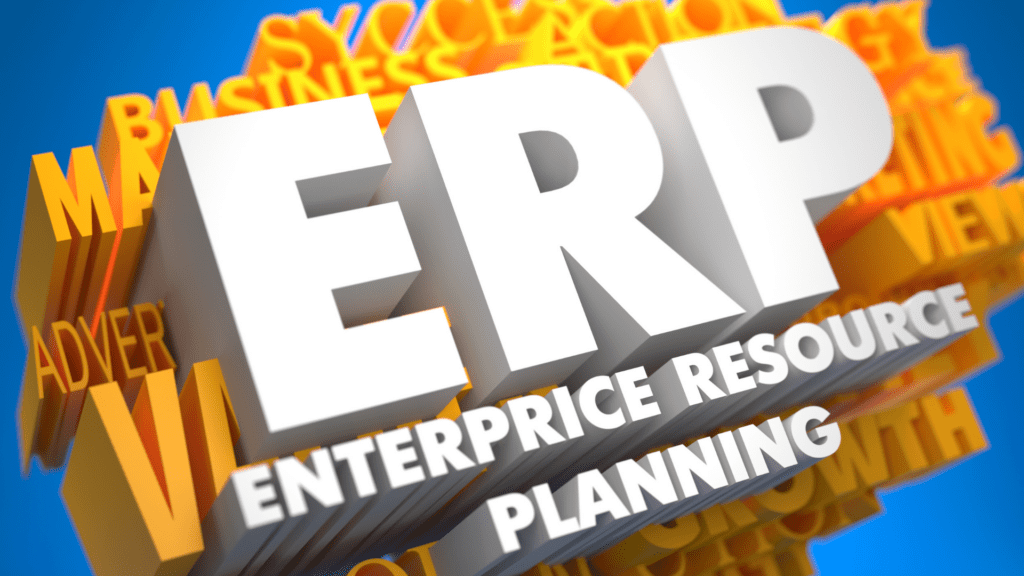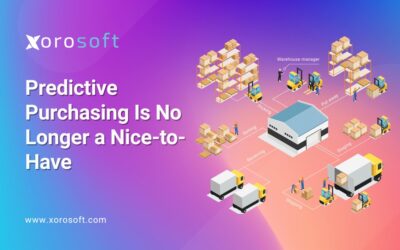
As businesses grow, their needs for managing data and operations become more complex. As such, companies have to integrate their systems to gain better visibility into their operations. This is where Enterprise Resource Planning (ERP) systems come in. ERP systems are integrated software solutions designed to help businesses manage their resources, operations and data more efficiently. In this guide, we will explore what ERP systems are, the benefits they offer, and how to choose the right ERP system for your business.
Introduction to ERP
ERP systems are designed to help businesses manage their data and operations more efficiently. They are integrated software solutions that are designed to provide visibility into all areas of the business, including finance, operations, customer service, human resources, and more. By having all of the data centralized in one place, businesses can gain a better understanding of their operations and make better decisions.
The term “ERP” is a bit of a misnomer, as the systems are not limited to just managing resources and planning. ERP systems are all-encompassing, integrated software solutions that manage and provide visibility into the entire business.
What is ERP?
ERP systems are integrated software solutions that help businesses manage their data and operations more efficiently. They provide a single source for managing all of the business’s data and operations, including finance, operations, customer service, human resources, and more.
The goal of an ERP system is to provide visibility into all areas of the business. This allows businesses to make more informed decisions, improve productivity, and optimize operations. With the right ERP system, businesses can save time, reduce costs, and increase profits.
Benefits of ERP Systems
The main benefit of ERP systems is that they provide businesses with a single source for managing their data and operations. This allows businesses to make more informed decisions, improve productivity, and optimize operations. Other benefits include:
• Increased Efficiency: ERP systems are designed to automate processes, which reduces manual work and minimizes errors. This increases efficiency and productivity.
• Improved Data Accuracy: By centralizing data in a single source, businesses can ensure accuracy and consistency.
• Improved Security: ERP systems are designed to provide businesses with the highest level of security. This ensures that data is kept secure and protected from unauthorized access.
• Improved Collaboration: By having all of the data centralized in one place, businesses can easily collaborate and share information.
• Reduced Costs: By streamlining processes and automating tasks, businesses can reduce their costs and increase their profits.
Common ERP Solutions
There are a variety of ERP solutions available on the market. Some of the most popular ERP solutions include:
• Microsoft Dynamics
• XoroERP by Xorosoft
• SAP ERP
• Netsuite ERP
• Epicor ERP
Components of an ERP System
The components of an ERP system vary depending on the vendor and the solution. Generally, though, an ERP system consists of the following components:
• Core Financials: This component includes modules for accounting, budgeting, and financial reporting.
• Production and Distribution: This component includes modules for inventory control, purchasing, scheduling, logistics, and manufacturing.
• Human Resources: This component includes modules for employee management, payroll, and benefit management.
• Customer Relationship Management (CRM): This component includes modules for sales and customer service.
• Supply Chain Management (SCM): This component includes modules for planning, logistics, and inventory management.
• Business Intelligence: This component includes modules for reporting, analytics, and data visualization.
Considerations for Choosing an ERP System
When choosing an ERP system, there are several factors to consider. These include:
• Cost: The cost of an ERP system can vary depending on the vendor and the solution. Make sure to compare the cost of different solutions to ensure you’re getting the best value for your money.
• Scalability: Make sure the ERP system you choose is scalable to accommodate the future needs of your business.
• Security: Make sure the ERP system you choose has the highest level of security to protect your data.
• Integration: Make sure the ERP system you choose is able to integrate with existing systems and applications.
• Customer Support: Make sure the ERP system you choose has good customer support to help you if you have any questions or issues.
Implementing an ERP System
Implementing an ERP system can be a complex and time-consuming process. It is important to ensure that the system is properly configured and integrated with existing systems and applications. It is also important to ensure that the system is properly tested and verified before it is put into use.
The implementation process typically involves the following steps:
• Planning: This step involves gathering requirements, analyzing the business’s current systems and processes, and creating a plan for implementation.
• Design: This step involves designing the system and configuring it to meet the business’s needs.
• Integration: This step involves integrating the system with existing systems and applications.
• Testing: This step involves testing the system to make sure it meets the business’s requirements.
• Training: This step involves training users on how to use the system.
• Go-Live: This step involves putting the system into use and monitoring it for any issues.
Conclusion
ERP systems like Xorosoft are integrated software solutions designed to help businesses manage their data and operations more efficiently. They provide a single source for managing all of the business’s data and operations, including finance, operations, customer service, human resources, and more. ERP systems offer a variety of benefits, including increased efficiency, improved data accuracy, improved security, improved collaboration, and reduced costs.
When choosing an ERP system, it is important to consider factors such as cost, scalability, security, integration, and customer support. It is also important to ensure that the system is properly configured and tested before it is put into use.
By understanding the meaning of ERP and the benefits it offers, businesses can make better decisions and optimize their operations. With the right ERP system, businesses can save time, reduce costs, and increase profits..









